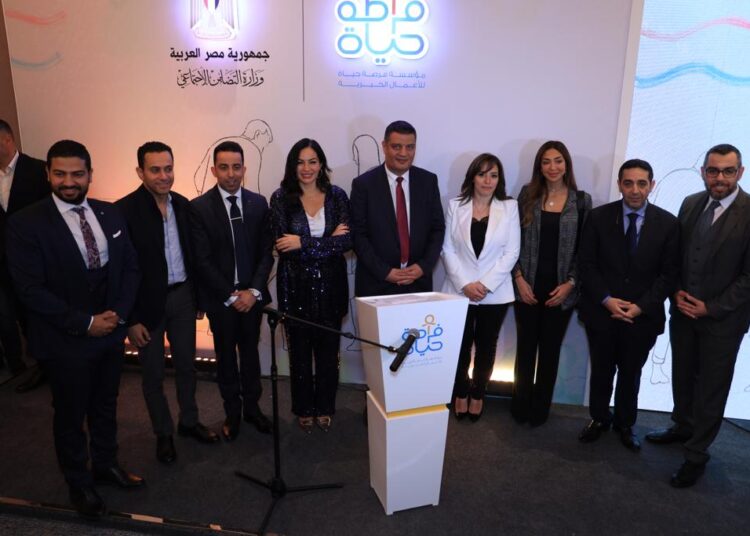Under the auspices of the Ministry of Social Solidarity, ‘Forset Hayah’ officially launched as Egypt’s first foundation dedicated to mobilizing community efforts and resources to treat children with rare diseases. The foundation will also raise awareness of rare diseases with a focus on early detection – as the key to recovery. Forset Hayah launches on the back of the resounding success of the crowdfunding campaign ‘Save Rasheed’ which rallied community efforts to save an Egyptian child with spinal muscular atrophy (SMA), opening the door to a groundbreaking Presidential initiative for SMA treatment.
Forset Hayah will work with all community stakeholders including government and non-government organizations and initiatives, healthcare specialists, pharmaceutical companies as well as individuals to reduce the burdens borne by children with rare disease and their families and caregivers, by helping cover the cost of treatment for eligible patients.
“Investments associated with the development of advanced gene therapies that have proven effective in treating rare diseases often mean that their price represents a huge challenge. By uniting to contribute to treatment provision, we can collectively achieve the ‘impossible’ and change the course of patients’ lives. The Presidential Initiative for SMA patients led by H.E President Abdel Fattah El Sisi is testament to the success of community-wide civic-government collaboration.” said Ghada Mounib, Founder and Chairperson of the Board of Trustees of Forset Hayah. “Our journey began in June 2021 with the story of Rasheed, the child who was diagnosed with SMA, after his mother turned to social media with a cry for help to save her child’s life. His only hope was an injection that cost over USD 2 million. It was then that I realized the solution was in our hands – as a collective – if each of us contributed EGP 250 pounds, and 140,000 of us did that, we would cover Rasheed’s treatment.”
“I created a Facebook group and contacted the Ministry of Social Solidarity which helped open the first bank account in the child’s name to receive donations. In only 18 days, we raised the full amount. With the influx of donations and the government’s extraordinary suport, we treated six more children with rare diseases in under six months. The success of our social media-led crowdfunding campaign in achieving the seemingly impossible led to the idea of establishing Forset Hayah as an organized platform that would take the success of crowdfunding for rare diseases to the next level, multiplying the number of children we can treat,” she added.
A disease is defined as rare when it affects 1 in 2,000 people. There are 6,000-8,000 rare diseases, most of which are genetic and manifest at birth. Approximately 75% of these affect children, often leading to death or disability.
“There’s a spectrum of rare diseases including neurodegenerative diseases, such as SMA, Duchenne disease; blood diseases such as thalassemia and sickle cell anemia; respiratory diseases such as cystic fibrosis; and metabolic diseases,” said Dr. Mohamed Jamil Gadallah, pediatrics professor at Suez University and member of the Board of Trustees of Forset Hayah Foundation. “One of the greatest challenges patients often experience is delayed diagnosis, which isn’t only due to the lack of medical and scientific data, but is also attributable to limited and prohibitively-expensive treatment options. Our top priority is to raise awareness of early diagnosis, allowing patients to receive treatment during the ‘golden age‘ – defined as a window when early intervention can halt disease progression and save the child’s life,” he said.
Dr. Amal Al-Bishlawi, professor of pediatrics and hematology at Abu Al-Rish university hospital, hailed the government’s attention to rare diseases, and its support of NGOs helping patients. “I am thrilled to take part in the launch of Forset Hayah. Many rare diseases in Egypt have a pediatric metabolic basis and marrow transplantation can often be the only hope for affected children. I hope that Forset Hayah’s efforts in raising awareness of rare diseases will facilitate efforts to establish a marrow bank in Egypt that can truly transform the treatment outlook for so many children.”






Discussion about this post